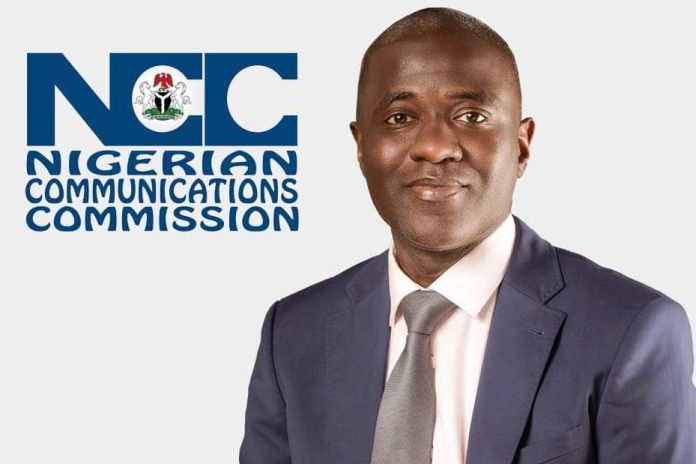The Executive Vice Chairman/CEO, Nigerian Communications Commission (NCC) Dr Aminu Maida says effective risk management is needed to navigate the dynamic environment of emerging technologies.
The EVC said this during the Telecom Industry Risk Management Conference with theme,”Evolution and Future Risk Management in the Telecom Industry: Harnessing Emerging Technologies and Trends.”
Maida noted that rapid technological advancements in the telecommunications industry have impacted the way Nigerians communicate, connect, and conduct businesses.
He therefore stressed the need for effective risk management noting that emerging technologies and trends present both unprecedented opportunities and challenges.
He said,”In an era marked by rapid technological advancements, the telecommunications industry finds itself at the forefront of innovation, shaping the way we communicate, connect, and conduct business. As we navigate this dynamic environment, the need for effective risk management becomes increasingly paramount. Today, we stand at the crossroads of tradition and transformation, where emerging technologies and trends present both unprecedented opportunities and challenges.
“While we discuss the current landscape of 5G networks, which boast of wider attack surface due to the increased number of connected devices and denser network infrastructure, it is imperative to even cast our gaze into the future. We are witnessing the dawn of 6G technology, the next frontier in wireless communication. With promises of even faster speeds, lower latency, and groundbreaking applications, 6G has the potential to revolutionize the way we experience connectivity. However, with this advancement comes the responsibility to address new risks, from cybersecurity threats to ethical considerations, ensuring that we pave the way for a secure and inclusive digital future.
“Looking beyond, the prospect of 7G technology also looms on the horizon. As we contemplate the possibilities, we must acknowledge that with each generational leap, we face not only technological advancements but also a fresh set of challenges. Anticipating and managing risks associated with 7G will require collaboration, innovation, and a proactive approach to ensure the seamless integration of this technology into our interconnected world.
In addition to the evolution of connectivity, we must consider the implications of emerging technologies such as quantum technologies (computing, sensing, and communications), advanced artificial intelligence, and Block Chain (distributed ledger) technologies. These trends, when harnessed effectively, hold the potential to transform our industry positively. However, they also introduce complexities that demand careful consideration in our risk management strategies.”
The EVC reiterated the commission’s commitment to foster an environment that encourages innovation, while prioritising the security and stability of our telecom infrastructure.
“The Nigerian Communications Commission (NCC) remains committed to fostering an environment that encourages innovation while prioritising the security and stability of our telecom infrastructure. As we navigate through 5G and the uncharted territory of the next generations of wireless technologies, collaborative efforts among regulators, industry players, and other stakeholders become even more crucial for sharing best practices, threat intelligence, resources and implementing robust risk management strategies.
“We should therefore move beyond mere compliance and reactive measures, and instead, harness the power of these new technologies and trends to build a resilient and future-proof industry.
“You would recall that in my engagements with the Industry and Media, I had stated that collaboration is a key driver of my leadership. Together, we can build a shared understanding of emerging risks and develop comprehensive mitigation strategies.
“Building a culture of risk awareness is paramount. As an industry, we must empower our people with the knowledge and skills to proactively identify and report risks and embed security awareness and risk management practices throughout our business processes. Emerging technologies such as AI should be leveraged to generate data-driven insights needed to predict, detect, and respond to risks in real-time. We should also monitor evolving threats and vulnerabilities on a continuous basis and streamline incidence response processes to build a resilient telecom industry.
“As we engage in discussions in these two days, let us not only address the challenges posed by current technologies but also anticipate and prepare for the opportunities and risks associated with the evolution towards 6G and beyond. Together, we can ensure that the telecoms industry not only adapts to change but thrives at the forefront of technological innovation.
Thank you for your attention, and I wish you all a forward-thinking and enlightening conference.”
Also speaking, the Head, Corporate Planning, Strategy & Risk Management (HCPSRM), Mr Kelechi Nwankwo reiterated that the Commission is looking at reviewing the current operating standards and introducing new standards which are in line with international best practices.
According to him, this is to facilitate resilience in the communications industry.
“Therefore, as we gather here today under the theme, “Evolution and Future Risk Management in the Telecoms Industry: Harnessing Emerging Technologies and Trends,” we embark on a journey of exploration and discovery in a rapidly evolving landscape of the telecoms industry. We must thus analyse, adapt, and effectively manage the risks that accompany innovation and development!
“The fast-disruptive world of the telecoms industry has witnessed convergence of diverse technological advancements with the potential of reshaping our future. From 5G networks, the Internet of Things (IoT), and Artificial Intelligence (AI), to Cloud Computing and beyond, the possibilities are limitless. However, with great opportunities, comes great risks, and it is our collective responsibility to address these risks and possibly safeguarding the industry’s growth and sustainability.
“This conference is a testament to our collective commitment towards recognizing the evolving risks and challenges we face, while embracing the immense opportunities emerging technologies and trends bring,” he noted .
He revealed that the World Economic Forum (WEF) in a survey of global leaders on the five risks most likely to present material crisis on a global scale in 2024, reported AI-generated misinformation/disinformation as number two (2) and cyberattacks as number five (5) .
“These two are technological risks. The number one (1) risk is extreme weather (environment) while numbers three (3) and four (4) are societal/political polarisation and cost-of-living crisis respectively, which are societal issues.
“Together, we will engage in discussions, gain key insights from industry experts, share experiences, and develop strategies to navigate through this ever-changing landscape. How we can mitigate technological risks and use technological innovations to provide solutions to address environmental, societal, economic (disruption of supply chains for critical goods & resources) and geopolitical (attacks on critical infrastructure) challenges, appears critical.
“As we engage ourselves in the next few days of fruitful deliberations, idea exchanges, and collaborations, let us challenge our perspectives and embrace a forward-thinking mindset.
“The telecoms industry has gone through remarkable transformations, and it is our responsibility to stay informed, prepared, and proactive in managing the potential risks ahead,” he said.
The Conference brought a gathering that brings together various stakeholders that includes- risk experts, academia, financial institutions, and professionals in telecommunications. I extend a warm welcome to each of you and grateful for the opportunity to explore the critical theme of “Evolution and Future Risk Management in the Telecoms Industry: Harnessing Emerging Technologies and Trends.”




